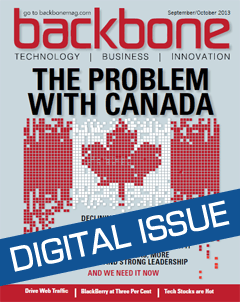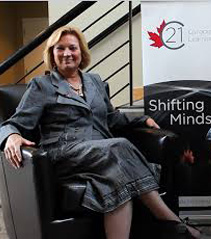 New Thinking for a New Education System
New Thinking for a New Education System
By Robert Martellacci, President and Publisher, MindShare Learning
With back to school upon us, there’s an immense buzz around the promise of mobile computing and tablet technology making its way into many Canadian classrooms. While there are many pockets of innovation, the challenge lays in the fact that education systems across Canada remain largely antiquated, lacking proper funding and unable to absorb today’s leading-edge technology. The lack of professional development has created a lost generation of teachers who are most comfortable with the tools of yesteryear.
The Canadian EdTech Leadership Summit, presented by MindShare Learning on Nov. 5, takes place at the MaRs Innovation Centre. This year’s theme is “Beyond Pockets of Innovation,” inspired by the fact Canada has been lagging behind when it comes to innovation in preparing our future leaders with the essential skills to compete in the 21st century global knowledge-based economy.
We have an alarming skills gap. The Conference Board of Canada estimates this gap is costing the Ontario economy up to $24 billion annually. This presents a challenge and opportunity for industry to partner with education and government to create a more tightly aligned ecosystem. We need to take a bold stance as a country to declare our innovative spirit, as is being proposed by C21 Canada, Canadians for 21st Century Skills and Innovation.
Why bother? What’s crystal clear is that we have a generation of students who are graduating from high school with no vision for where they’re going. I come across many parents whose kids are taking a “gap” year because they are not sure what they want to do with their lives. Isn’t that what university is about, to explore the arts, humanities and social studies or sciences?
Recently, I spent part of a weekend as a mentor at the Startup Weekend Toronto EDU event. Youths formed teams that created technology solutions, and companies addressed many of the challenges that education faces today. Question: What happens when you engage future leaders with diverse backgrounds such as engineering, computer sciences, designers, marketing and business students in one room? This is where the magic happens. Teams created solutions such as parent communication tools, personalized scholarship search engines, and virtual fieldtrip tools, to name just a few. What fascinated me as an entrepreneur and parent was the creativity and problem-solving and communications skills that emerged from each of the teams; they walked the digital talk, and they were having fun too. Isn’t that what school should be nurturing?
Being part of Startup Weekend Toronto Edu was special for me. It opened my eyes to how vital it is to create and nurture innovation hubs in schools, towns and cities where all Canadians can be inspired to solve challenges, hone their skills to discover their passion and make a valued contribution to our country.
I recently took on an intern student from a local college. I think I learned as much from the experience as she did. Understanding our youth and providing them with opportunities to explore, learn and grow is critical to nurturing their future success. It takes a digital village of stakeholders from business, education and government to nurture and help chart a course for our next generation of leaders. I’m all in! Are you?




